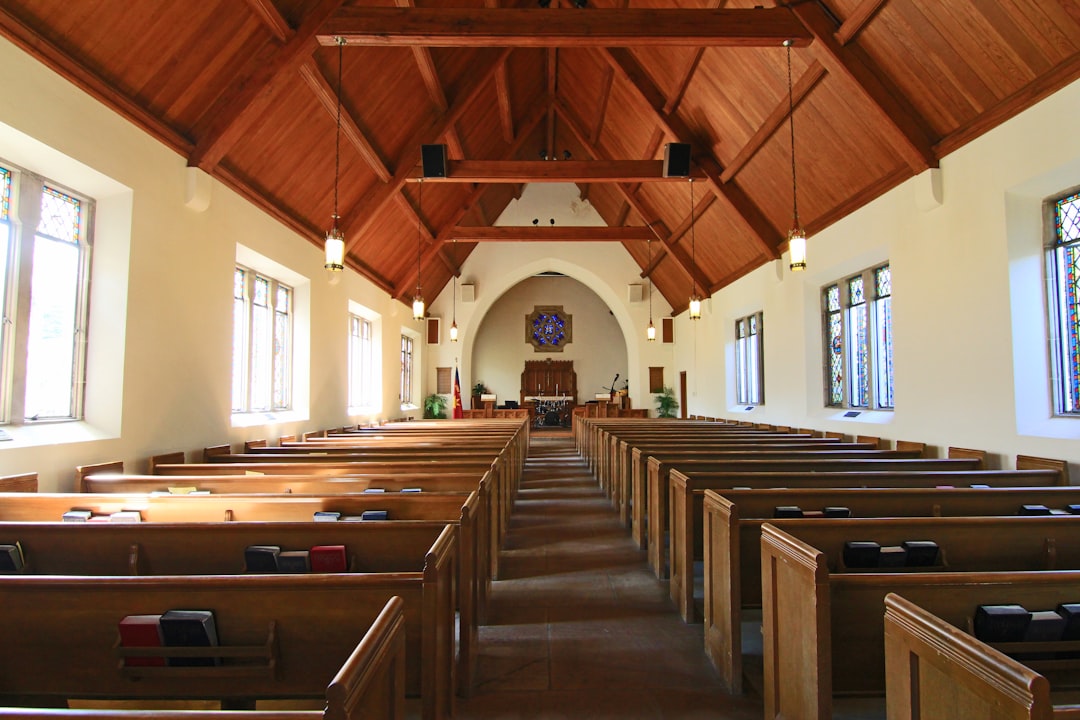In Georgia, clergy abuse is a growing concern with victims seeking justice. Recognizing red flags like manipulation and emotional control is crucial. Victims face challenges due to secrecy and stigma, making specialized clergy abuse attorneys essential for guidance. These attorneys provide legal expertise, helping survivors understand their rights and navigate complex processes. Choosing the right attorney with empathy and religious organization knowledge is key. Legal advocacy combined with counseling ensures victims achieve justice while healing.
In recent years, the issue of clergy abuse has garnered significant attention, highlighting a profound need for justice and support for victims. Georgia, like many other states, grapples with the aftermath of such misconduct within religious institutions. For those seeking redress, understanding their legal options is paramount. This article delves into the critical role of a Georgia clergy abuse attorney in empowering survivors to reclaim their lives and hold accountable those who have perpetrated such acts. By exploring the complexities of these cases, we aim to provide valuable insights for victims navigating this challenging journey towards justice.
Understanding Clergy Abuse in Georgia: Recognizing Red Flags

In Georgia, clergy abuse has been a growing concern, prompting many victims to seek justice and support. Understanding the signs of such abuse is crucial for both individuals and communities. Recognizing red flags can help identify situations where spiritual guidance crosses into harmful or exploitative territory. According to recent studies, clergy-related abuse cases have increased, highlighting the need for awareness and specialized legal assistance. A Georgia clergy abuse attorney plays a vital role in empowering victims to speak out and hold perpetrators accountable.
One of the primary challenges in addressing clergy abuse is its often secretive nature. Victims may feel hesitant to come forward due to fear, shame, or concern for their privacy. Red flags include unusual behaviors such as manipulation, pressure for sexual favors, or inappropriate physical contact. For instance, a clergy member using their position to exert control over a congregation member’s personal life or finances could be indicative of abuse. It’s important to note that abuse can occur across various forms, including emotional, psychological, and financial manipulation.
Practical steps include encouraging open dialogue within religious communities about the issue and promoting education on healthy boundaries. A Georgia clergy abuse attorney can provide guidance tailored to local laws and help victims navigate complex legal processes. By recognizing and understanding these red flags, individuals and communities can foster a safer environment and support those affected by such traumatic experiences. This proactive approach is essential in preventing future instances of clergy abuse.
Your Rights: Legal Protections for Victims of Clerical Abuse

Many victims of clergy abuse struggle to understand their rights and legal options due to the sensitive nature of their experiences. In Georgia, individuals who have suffered at the hands of spiritual leaders can find support through specialized clergy abuse attorney Georgia practices dedicated to protecting their rights. These legal professionals possess in-depth knowledge of state laws and church governance structures, enabling them to guide clients navigating complex emotional and legal challenges.
The first step for victims is recognizing their right to seek justice. Georgia law provides a framework for holding religious institutions accountable for the actions of their clergy. This includes civil litigation for compensation and, in some cases, criminal charges against abusers. Clergy abuse attorneys in Georgia can help individuals understand their entitlements under these laws, ensuring they receive fair treatment during legal proceedings. For instance, victims may be entitled to damages for emotional distress, medical expenses, and other related costs.
It’s crucial to act promptly after discovering abuse. Time limits apply to filing lawsuits and reporting crimes, so victims should consult a clergy abuse attorney Georgia as soon as possible. Expert legal counsel can expedite the process, ensuring evidence is preserved and potential statutes of limitations are met. By engaging experienced attorneys, survivors can focus on healing while their case progresses, accessing support services and counseling that cater to their unique needs.
Finding the Right Georgia Clergy Abuse Attorney

Finding a competent and trustworthy Georgia clergy abuse attorney is a critical step for survivors seeking justice and healing. The process can be complex, especially when navigating sensitive legal matters related to religious institutions. It’s essential to choose a lawyer who possesses not only exceptional legal expertise but also empathy and a deep understanding of the unique challenges faced by victims of clergy abuse.
Victims of spiritual exploitation or sexual misconduct by religious leaders often face additional barriers, including cultural stigma, fear of retaliation, and emotional trauma. A skilled Georgia clergy abuse attorney should be well-versed in these complexities and adept at advocating for clients’ rights within the specific legal framework governing religious organizations. They must also have a proven track record of successfully representing victims against churches, ministers, or other spiritual authority figures.
When selecting a lawyer, consider seeking referrals from reputable support groups or advocacy organizations specializing in clergy abuse cases. Additionally, reviewing case outcomes and client testimonials can provide valuable insights into an attorney’s capabilities. Remember, the right Georgia clergy abuse attorney should offer more than legal counsel; they should be an ally who empowers survivors to take control of their healing journey while ensuring their rights are protected within the legal system.
Navigating Legal Process: Steps to Seek Justice and Healing

Navigating the legal process after experiencing clergy abuse can be a daunting task for victims seeking justice and healing. In Georgia, where such incidents have garnered significant attention in recent years, understanding the steps to take is crucial. Engaging a competent clergy abuse attorney Georgia becomes an essential part of this journey. The first step involves reaching out to a specialized law firm with experience in handling these delicate matters. This is not merely about legal representation but finding advocates who possess deep empathy and an unwavering commitment to justice.
Victims should expect their clergy abuse attorney Georgia to educate them on the legal options available, which may include civil lawsuits for damages or reporting the abuse to relevant authorities. Documenting evidence meticulously is paramount; this includes any records of interactions with the abuser, correspondence within the church hierarchy, and medical or psychological reports detailing the trauma suffered. A skilled attorney will guide victims through the complexities of gathering and presenting this evidence effectively. The legal process often requires patience as investigations proceed and deadlines for filing lawsuits are met.
Throughout this journey, victims should prioritize self-care and seek support from counseling services or support groups designed to help those who have experienced clergy abuse. This dual approach—legal advocacy and emotional healing—is vital in ensuring that justice not only serves as a deterrent but also contributes to the overall well-being of the victim. With proper guidance from a clergy abuse attorney Georgia, victims can navigate this challenging process with greater confidence, ultimately seeking to hold accountable those who have caused them harm.
Related Resources
Here are some authoritative resources for an article about a Georgia clergy abuse law firm for victims:
- National Center for Victims of Crime (Non-profit Organization): [Offers comprehensive resources and support for crime victims, including guidance on legal options.] – https://ncvc.org/
- Georgia Legal Aid Society (Legal Services Provider): [Provides free civil legal assistance to low-income Georgians, including help with abuse cases.] – https://www.georgialegalaid.org/
- University of Georgia School of Law (Academic Institution): [Offers insights into religious freedom and clergy misconduct through legal research and publications.] – https://law.uga.edu/
- Georgia Bureau of Investigation (Government Agency): [Enforces criminal laws in Georgia, including investigations related to sexual abuse within institutions.] – https://gbi.georgia.gov/
- Churches United in Christ (Religious Organization): [A national religious body that advocates for victims of clergy abuse and offers support through counseling services.] – https://cui.org/
- American Bar Association Commission on Ethical Standards (Professional Organization): [Provides ethical guidelines and resources for attorneys, including issues related to clergy misconduct.] – https://www.americanbar.org/groups/ethics/resources/
- National Conference of State Legislatures (Government Research Organization): [Offers state-by-state analysis and legal resources on clergy abuse and protection laws.] – https://ncsl.org/
About the Author
Meet Elizabeth Anderson, a prominent attorney and certified specialist in clergy abuse law. With over 15 years of experience, Elizabeth has dedicated her career to advocating for victims of spiritual exploitation. She is a sought-after speaker and has been featured in legal publications like the Clery Act Journal. Active on professional platforms, including LinkedIn, she shares insights on religious abuse prevention. Her practice focuses on holding institutions accountable and providing compassionate support to survivors.





